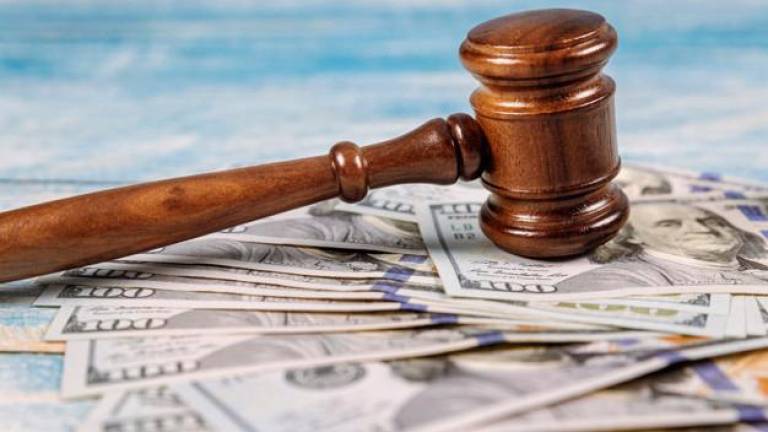Trial begins in 'rotten' Vatican financial scandal

Stay tuned with 24 News HD Android App

A financial scandal involving an opaque, loss-making Vatican property deal paid for with charity funds goes to trial Tuesday after a two-year probe that has implicated a once-powerful cardinal.
Vatican prosecutors allege that ten defendants, including high-rolling London financiers and church employees, engaged in various crimes such as embezzlement, fraud, and corruption.
It is unclear whether former cardinal Angelo Becciu, then number two at the powerful Secretariat of State, will appear in the makeshift courtroom held within the Vatican Museums on the trial's opening day.
Becciu, 73, who says he is the innocent victim of a plot, is the highest-profile defendant embroiled in the Church's ruinous purchase of a 17,000-sq metre London property in the upmarket neighbourhood of Chelsea under his watch.
The case against Becciu, which carries charges of embezzlement, abuse of office and witness tampering, also includes separate allegations over hundreds of thousands of euros of church funds paid to his brother's charity.
The trial ensnaring the former right-hand man to Pope Francis -- who was fired by the pontiff in September and stripped of his privileges as cardinal -- represents the first time a cardinal has been indicted by Vatican criminal prosecutors in modern history.
Bags of money
The complex case alleged by prosecutors paints a picture of dubious, risky investments involving millions of dollars of Vatican money, little or no oversight, and double-dealing by outside consultants and insiders trusted with the financial interests of the Secretariat of State, the Vatican's most important department charged with general affairs and diplomacy.
A 487-page indictment released earlier this month sheds light on hefty bank transfers, text messages between collaborators from seized cellphones -- even bags of money changing hands and secret meetings in luxury hotels.
The primary defendants are "actors in a rotten predatory and lucrative system, sometimes made possible thanks to limited, but very incisive, complicity and internal connivance," wrote prosecutors.
Since becoming pope in 2013, Francis has vowed to clean up the Church's finances, dogged for decades by scandal. After a 2019 raid on the Secretariat's offices by Vatican police, Francis stripped the body of oversight of its own funds, handing that responsibility to others.
The scandal is particularly embarrassing because funds used for risky ventures, including the disastrous 350-million-euro ($415 million) investment in Chelsea, came from the Peter's Pence, an annual fund for the pope's charities.
Risky ventures
The current case dates from 2013, when the Secretariat borrowed more than $200 million, mainly from Credit Suisse, to invest in a Luxembourg fund managed by an Italian-Swiss businessman, Raffaele Mincione. Half was intended for stock market purchases and the rest for part of the London building.
Mincione, prosecutors allege, used the money to invest in high-risk ventures over which the Church had no control. By 2018, the Secretariat had already lost millions and tried to pull out of the deal.
But another London-based financier, Gianluigi Torzi, brought in to broker the purchase of the rest of the building and cut ties with Mincione, instead joined forces with him, say prosecutors.
Torzi arranged for the Holy See to give Mincione £40 million to buy out the financier's share of the London property, but allegedly inserted a clause into the deal that gave himself control of the building through voting rights.
Torzi is accused of demanding 15 million euros to relinquish control.
Mincione and Torzi were helped, prosecutors claim, by Enrico Crasso, a former financial consultant to the Secretariat, and employee Fabrizio Tirabassi, both of whom face charges including fraud.
Also implicated are two former top officials within the Vatican's financial regulator, including its ex-president, Swiss lawyer Rene Bruelhart, whom prosecutors say did not do enough to protect the Secretariat's interests.
In another twist, Becciu is accused of paying defendant Cecilia Marogna 575,000 euros in Vatican funds earmarked for freeing captive priests and nuns abroad that Marogna -- dubbed "the Cardinal's lady" by the Italian press -- spent on luxury goods and hotels.
Prosecutors claim the Vatican's top hierarchy, including Becciu's boss and pope ally Cardinal Pietro Parolin, were in favour of the London venture, but unaware of its financial details.
